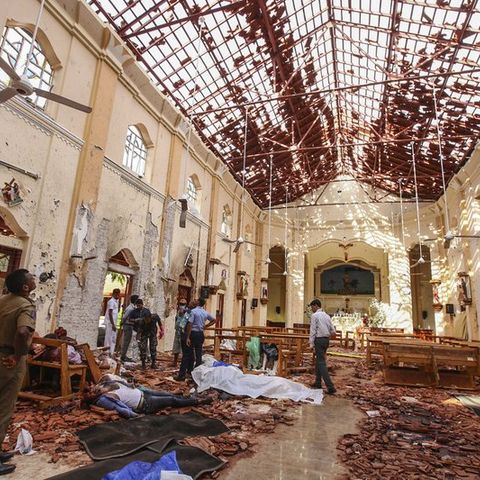
Explicit
26 APR 2019 · Listen to an expert panel discussion on suicide bombings on Easter Sunday led by APAC Assistance Director Paul Quaglia, Chief Analyst Carol Librojo and Operations Assistant Bhargav Reddy.
In the discussion, our experts addressed the finer details and critical questions in the aftermath of the Easter Sunday terror attacks that killed more than 250 people in Sri Lanka. Suicide bombers targeted four luxury hotels and three Christian churches in Colombo, Negombo and Batticaloa in what were described as Sri Lanka’s worst single-day terror attack since the end of the civil war between the government and the separatist Tamil group in 2009. Authorities blamed a local Islamic radical group for the carnage and are now looking into their possible collusion with foreign terrorist organizations such as the Islamic State, which claimed responsibility three days after the incident. The Sri Lankan government confirmed that they received intelligence warnings prior to the attacks and acknowledged several lapses and shortcomings within the security community.
The failure of the security establishment to act on the warning and to coordinate these with the relevant government agencies has raised several questions about the soundness of the country’s intelligence and security system. There are even theories circulating suggesting a possible conspiracy among the Buddhist nationalists within the government who deliberately ignored the intelligence warnings. Furthermore, did the deepening political rift between the Prime Minister and the President contribute to the lack of proper communication and coordination within the security sector?
At present, the threat is ongoing. More unexploded bombs are still being recovered and despite the arrest of dozens of suspects and persons of interest, authorities are hunting down more suspects who may still be at large, possibly armed with more bombs. Emergency measures have been adopted, including warrantless arrests. An indefinite curfew has also been imposed to prevent further attacks and to contain other potential fallout risks such as renewed communal and religious unrest.
The long-term security implications of the latest attack in Sri Lanka have yet to clearly unfold. Business establishments, however, need to immediately reassess and update their security and contingency plans in the wake of a heightened threat of terrorism. Sri Lanka-based businesses should now be more aware that in the terrorists’ minds, soft targets such as hotels and other facilities with weak security arrangements will always be attractive targets.
Copyright 2024 - Spreaker Inc. an iHeartMedia Company
